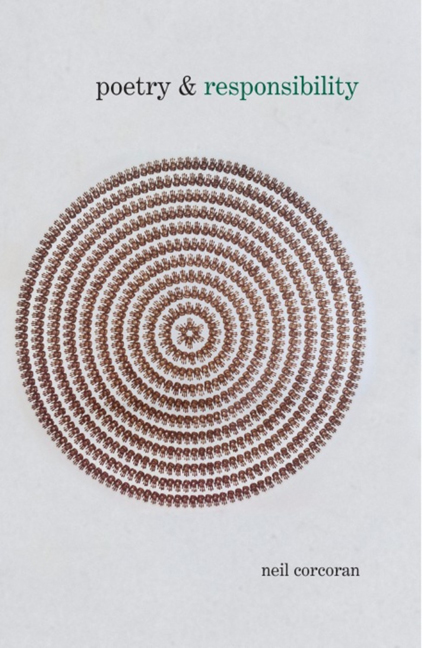Book contents
- Frontmatter
- Dedication
- Contents
- Acknowledgements
- Introduction: The Responsibilities of Poetry
- PART I
- PART II
- PART III
- 9 Everyone and I: Frank O'Hara, Billie Holiday and Modern Elegy
- 10 Poison and Cure: Ted Hughes's Prose
- 11 Back Home: Bob Dylan, Now and Then
- 12 In Retrospect: Christopher Logue, Anne Carson, David Jones
- Notes
- Index
11 - Back Home: Bob Dylan, Now and Then
from PART III
- Frontmatter
- Dedication
- Contents
- Acknowledgements
- Introduction: The Responsibilities of Poetry
- PART I
- PART II
- PART III
- 9 Everyone and I: Frank O'Hara, Billie Holiday and Modern Elegy
- 10 Poison and Cure: Ted Hughes's Prose
- 11 Back Home: Bob Dylan, Now and Then
- 12 In Retrospect: Christopher Logue, Anne Carson, David Jones
- Notes
- Index
Summary
Ah, but I was so much older then
I'm younger than that now
‘My Back Pages’, Another Side of Bob Dylan (1964)As Dylan approached his seventieth birthday on 24 May 2011, I had been listening for a while to The Original Mono Recordings, usually known as the Mono Box, and The Witmark Demos: 1962–1964, both released late in 2010. The Mono Box puts back into circulation mono versions of the first eight albums, from Bob Dylan in 1962 to John Wesley Harding in 1967; The Witmark Demos, volume 9 of Dylan's ongoing ‘Bootleg Series’, brings into official circulation for the first time an astonishing range of material – 47 songs in all, in less than three years – which Dylan recorded for his first publishing companies, Leeds Music and M. Witmark & Sons, only some of which were ever officially studio-recorded and released by Dylan himself. Many, however, have appeared over the years on bootleg recordings, as have a very large number of Dylan's other songs and variant versions and accounts of songs. Hence the title of this series, in Dylan's commandingly insouciant reclamation of his own copyright.
So as Dylan approached 70 I was thinking about his twenties. These albums, though, are the product also of Dylan in later life. The Bootleg Series has long since made him his own editor. This is not a neutral activity. It involves emotional, psychic and interpretative investment. Are we to read the Mono Box, for instance, only as Dylan's sudden, even unlikely, perhaps nostalgic, desire that we hear him in mono again after all these years, or is he implicitly offering this phase of his career as a completed arc, one that now comes with exceptionally high authorial approval and imprimatur? Or, should we read it as the definition of such an arc by an artist confident that his later, still continuing, work does not pale even in the light of this early incandescence? This would be an artist therefore also confident that, against many odds, his exceptionally lengthy career has resourcefully negotiated a not uncommon kind of twentieth-century American aesthetic catastrophe: that of the spectacular earlier career forever shadowing all subsequent work.
- Type
- Chapter
- Information
- Poetry & Responsibility , pp. 164 - 179Publisher: Liverpool University PressPrint publication year: 2014



